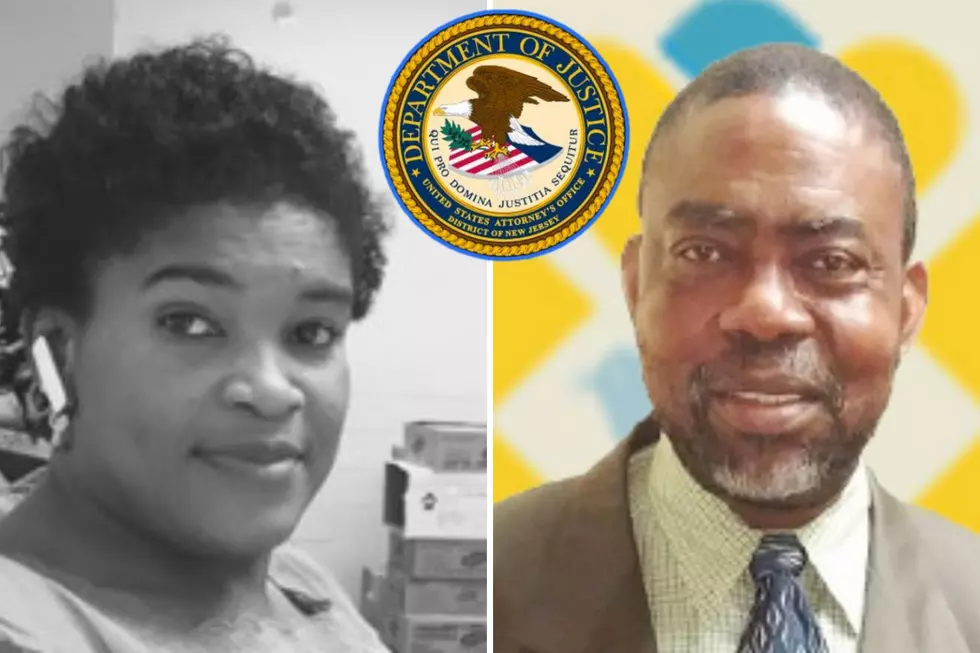
Girl, 12, says she was violently raped — NJ judge doesn’t think it’s that serious
NEW BRUNSWICK — A 12-year-old girl described losing her virginity in a violent struggle against a 16-year-old boy but a New Jersey judge doesn’t believe she suffered enough to have her accused rapist face charges as an adult.
Prosecutors in Middlesex County charged the teenage boy with first-degree aggravated assault, second-degree sexual assault and third-degree child endangerment and are seeking to try him in adult criminal court.
But Family Court Judge Marcia Silva in August blocked prosecutors’ request, lectured them about the law and repeatedly suggested that the alleged sexual assault — which resulted in the girl bleeding — was not the biggest deal, reasoning that “other than the ramifications of losing her virginity, which the court does not find to be especially serious harm,” the girl “did not suffer any physical or emotional injuries.”
Silva’s ruling, however, was not the final word. A three-judge appellate panel this week overturned her decision, which they said had resulted in the “minimization of the harm wrought on a 12-year-old child.”
The case illustrates the balance that New Jersey’s courts try to maintain when dealing with underage defendants.
The case might also be another example of the difficulty that sex abuse victims face when they turn to the police and the courts.
Unlike courts for adults, the state’s juvenile system is aimed primarily at rehabilitation. A revamp of the law that went into effect in 2016 prevents defendants younger than 15 from being tried as adults, prohibits solitary confinement for juvenile offenders and requires in almost all cases that underage defendants be housed in juvenile facilities even if they’re convicted in adult criminal court.
According to statistics compiled by the Juvenile Justice Commission in the state Attorney General’s Office, 46 of the 489 juveniles currently in the court system have been waived, or moved from Family Court to adult criminal court.
On Wednesday, Middlesex County Prosecutor Andrew Carey said most cases involving juveniles are resolved “without involving the courts by working with our local police agencies, school officials, and other community partners. In other instances, we work to resolve cases in the Family Court. In a very small amount of cases, the right thing to do is to file a motion to waive a juvenile up to adult court. Prior to doing so, I consider all of the relevant factors extremely carefully.”
For certain crimes, including rape, prosecutors can waive juvenile cases to adult court by filing a motion for referral with a list of reasons after considering eleven factors listed in the waiver law. A court can reject the motion if a judge finds that the prosecutor abused his discretion, considered irrelevant factors or made a “clear error in judgment.”
In this case, the appellate judges say it was their colleague — who was appointed to the bench in 2014 by Gov. Chris Christie — who made the error.
According to the appellate decision's summary of the case, the girl (identified in the public document by the alias “Mary” to protect her identity) and the teen boy (identified by his initials because he is a minor) became “boyfriend and girlfriend” in the summer of 2017 after their families shared a home for several months.
One day after she returned home from summer school, the teenage boy, who had been smoking weed with friends on the porch, followed Mary inside and pushed her into a bed in her cousin’s room. He took off her clothes and grabbed her hands. While wearing a condom, he forcibly penetrated her, making her bleed, officials charge. Mary, meanwhile, told him to stop and repeatedly tried to push him off her, even biting him, officials said. Eventually, Mary got the teen off of her and she ran to a friend’s home, officials said.
Mary’s mother later find out what happened after her nephew overheard the teen bragging to friends about having had sex with Mary.
When police tried to arrest the teen, they said he resisted and spit in an officer’s face.
Investigators said the teen at first denied having sex with Mary but eventually admitted that they had “fooled around a little bit” and had sex once, which he insisted was consensual but that Mary had not wanted anybody to know about it.
He said he stopped dating the 12-year-old because she was “too little” for him, investigators said.
Prosecutors wanted to try the teenager as an adult because, they argued, he “knew what he was doing, knew that the victim was 12 years old, had the opportunity to consider whether or not he wanted to pursue the sexual encounter to completion and even had the ability to stop the sexual assault.” He also had “the forethought to be prepared with a condom,” prosecutors said.
Prosecutors said Mary and her mother support the adult prosecution of the teenage boy, a special-needs student who had been suspended from school 12 times, had previously been found guilty of juvenile offenses six times and who had already violated probation.
But in a 37-page opinion, Silva discounted all the arguments and suggested that prosecutors in the county were waiving too many juvenile cases.
Silva claimed that “referral motions are being filed in cases in which the offenses charged are not especially heinous and the juveniles’ prior histories are not especially extensive or serious to infer that they are not amenable to rehabilitation in the juvenile justice system.”
Silva said the prosecutor should not have discounted the teen’s explanation for what happened and that she didn’t think it was unusual for a teenage boy to carry around a condom.
She added that even if the 12-year-old girl was telling the truth, “the offense is not an especially heinous or cruel.”
“The victim claimed that the juvenile pushed her, grabbed her hands, removed her clothing and then penetrated her without her actual consent. As a result, she lost her virginity and bled […] However, beyond losing her virginity, the state did not claim that the victim suffered any further injuries, either physical, mental or emotional,” Silva reasoned.
Silva said the teenage boy’s actions did “not demonstrate that he used extreme violence or a weapon against the victim in furtherance of the offense or that he acted in a calculated, premediated [sic] or in an especially heinous manner seeing as the force used by the juvenile was not excessive or beyond what is required by the law and the victim did not suffer any physical or emotional injuries as a result, other than the ramifications of losing her virginity, which the court does not find to be especially serious harm in this case.”
The appellate decision, on the other hand, points out that the teenage boy would be in the wrong even if the girl had consented because she was 12 and he was four years older than her.
The appellate judges said the law governing waivers is clear and there was no need for the Family Court judge to delve into the law’s history or bring up the county’s juvenile justice statistics.
“The point of a waiver hearing is not to provide an opportunity for a judge to school the state as to how to view the evidence, but merely to decide whether or not the state’s conclusions about the charges were an abuse of discretion,” the panel wrote, sending the case back for a new hearing.
Silva has been assigned to Family Court since January 2014 and her term runs through 2021. In 2011, she unsuccessfully ran for a seat in the Assembly as a Republican.
Sergio Bichao is deputy digital editor at New Jersey 101.5. Send him news tips: Call 609-359-5348 or email sergio.bichao@townsquaremedia.com.
More From New Jersey 101.5 FM









